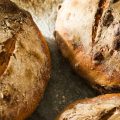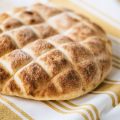When baking sourdough bread, we prefer to use flour that we are familiar with, such as white bread flour, and whole wheat flour. Since sourdough bread produces naturally occurring yeasts and healthy bacteria, it’s automatically considered as a healthier bread. But what about rye bread? If you’re wondering whether rye bread can be included in your low-carb diet, then let’s take a look at the healthier option for you.
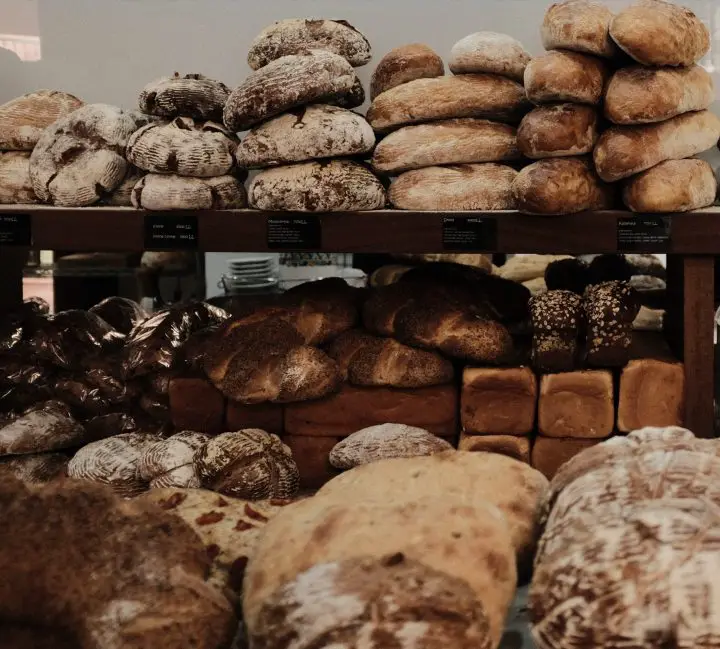
Table of Contents
- What is Rye Bread?
- What is Sourdough Bread?
- Rye Bread vs Sourdough – Difference Between Rye and Sourdough Bread
- Is Rye Bread Healthier than Sourdough Bread?
- Types of Rye
- Can You Make Rye Sourdough Bread?
- Why Rye Flour is Good in Sourdough
- What is the Healthiest Bread?
- Sourdough or Rye?
- Rye bread vs Sourdough FAQs
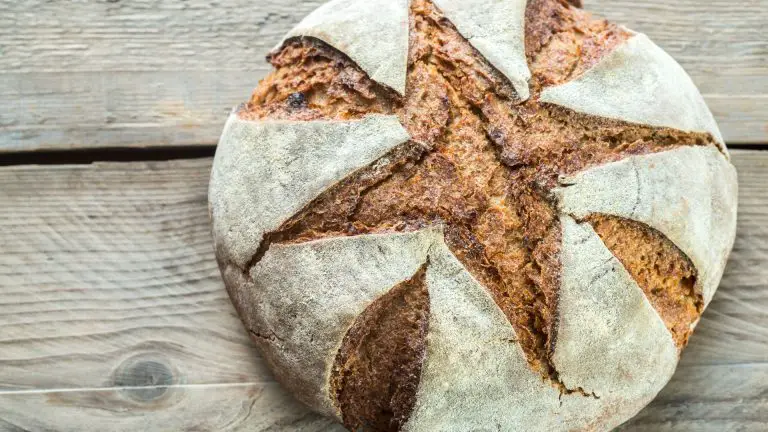
Rye Sourdough Bread
To make a rye sourdough bread, you’ll need a brand new sourdough starter that is fed with equal parts rye flour and water, instead of the usual whole wheat flour or white flour. The resultant moist loaf, is incredibly rich, and imparts a delightfully enhanced sour flavor, compared to other sourdough breads.
- Total Time: 45 minutes
- Yield: 1 loaf 1x
Ingredients
- 500g rye flour
- 10g salt
- 250g rye sourdough starter
- 360ml water
Instructions
- Make the dough: Ensure that your sourdough has been fed the night before, so that it is active and bubbling the next day. Add the rye flour to a clean mixing bowl, and toss the salt into the flour. Add some water and sourdough starter to the flour. Combine these ingredients to create a dough. The dough may feel like a heavy paste. But don’t worry; this is exactly what you’re looking for when working with rye flour.
- Transfer the dough onto a clean work surface. Then stretch and fold the rye dough, so that the rye flour is thoroughly incorporated in the dough. There is very little gluten in rye flour, so you won’t have to knead the dough as much as you would in regular sourdough recipes.
- Shape the dough into a ball. Replace the dough into the mixing bowl, (greased with a little olive oil). Cover the bowl with cling film wrap, and let the dough proof for 1 to 2 hours at room temperature.
- Then transfer the dough to a lightly floured work surface, and reshape the dough into a round shape.
- Roughly knead the dough, then place the dough into a proofing basket dusted with flour. Preheat your oven to 450 degrees F, and place a Dutch oven in the oven. The Dutch oven will help trap moisture, and create a crisp crust.
- Place the dough into the Dutch oven, and place this into the preheated oven. Bake for 20 minutes. Then remove the lid of the Dutch oven and bake for 25 minutes at 430 degrees F.
- Remove the loaf from the oven, and place on to a cooling rack, wait for an hour before cutting into the bread.
- Cook Time: 45 mins
- Category: bread
What is Rye Bread?
Rye is a type of whole grain that is unlike wheat and contains a small amount of gluten. Rye bread can be dark or light in color with a stronger flavor, compared to white wheat bread.
Additionally, rye is much healthier than other bread, in the sense where it can improve levels of blood sugar, prevent heart disease, and aid in digestive health.
What is Sourdough Bread?
Sourdough bread is made with a natural leaven otherwise known as a starter. Unlike regular wheat bread that requires commercial yeast to rise, the starter acts as a natural leavening agent in sourdough baking.
The starter is fed with equal parts flour and water, and must be fed at regular 6 to 12-hour intervals. Eventually, the starter will start to inhibit naturally occurring yeasts and bacteria, which contribute to the unique flavors of the bread.
Rye Bread vs Sourdough – Difference Between Rye and Sourdough Bread
Rye is a type of bread that contains rye flour. There is a significant absence of gluten in the rye, which prevents the bread from rising, producing a smaller dense loaf. This is why rye loaves may include a small amount of white wheat flour to create a lighter loaf.
On the other hand, sourdough bread is made from a starter, that begins with a type of flour (usually white wheat flour) and water. Eventually, this combination of ingredients attracts naturally occurring yeasts from its surroundings to help leaven the bread, instead of using commercial yeast. The starter must be fed regularly to keep it active, before sourdough baking.
The good news is, that you can add rye flour to your sourdough starter, to create rye sourdough bread, with a good bread rise, delicious flavor, and moist texture.
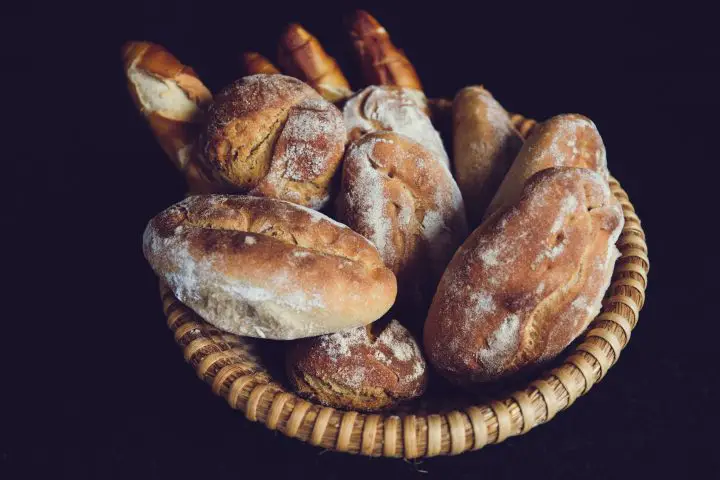
Is Rye Bread Healthier than Sourdough Bread?
Rye bread is considered more nutritious than whole wheat sourdough bread, as it provides an increased benefit of vitamins and minerals to those consuming it.
Many sourdough lovers, prefer sourdough bread because of its increased nutritional profile, as well as its ability to regulate blood sugar levels.
However, rye bread contains even more fiber and vitamin content compared to sourdough, especially when you combine the two together, to create a rye sourdough!
Some of the reasons why rye is so much better than regular sourdough bread include:
- Speeds up fermentation
- Adds a unique flavor profile
- Fermentation process makes a less dense loaf
Speeds up Fermentation
When you include rye flour in sourdough bread, it responds with an increased level of activity, compared to other flours like wheat flour.
Since rye attracts many natural yeasts, it becomes very active when added to sourdough, and ferments at a quicker rate. This makes rye flour an easier, and better inclusion to your sourdough, especially if you’re looking to make a sourdough loaf in a shorter period of time.
Adds a Unique Flavor Profile
Traditional rye bread offers an extremely unique flavor profile due to the combination of: a large variety of yeasts, a unique enzyme activity, and a high nutrient profile. Pairing this with sourdough’s slow fermentation, ensures that these flavors develop further, producing loaves with a hint of sourness, complete with a subtle fruitiness.
Fermentation Process Makes a Less Dense Loaf
Traditionally, rye is a very dense bread, which is not ideal for a typical lunchtime sandwich.
However, once rye flour is added to sourdough, the fermentation process reduces its high density, making your loaf moist and fluffy, with a chewy texture that is heavenly.
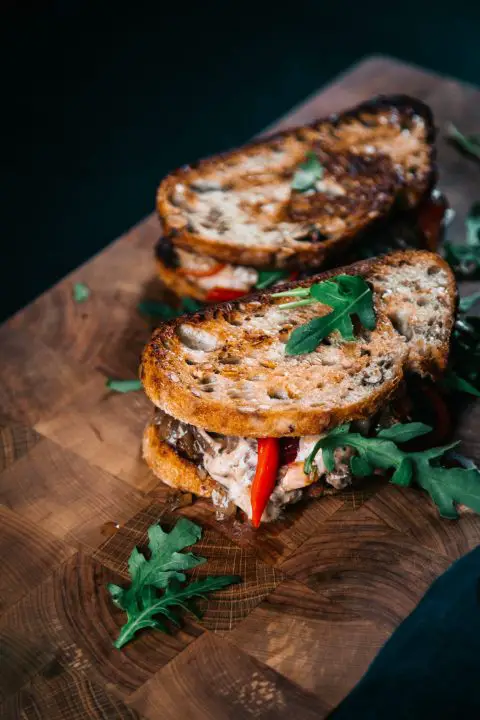
Types of Rye
It’s important to recognize the different varieties of rye flour, before you plan to incorporate this super flour in your recipes.
These varieties include:
- Dark rye
- Light rye
- Pumpernickel flour
Dark Rye
Dark rye contains the entire grain, including bran, germ and endosperm, making it a very nutritious whole grain flour. Because of this, you may find that your dark rye flour loaves are much heavier than white wheat flour bread. Whole grain rye with added grains has much higher fiber content, minimizing gut bloating, and ensuring that your gut is satiated.
Light Rye
Light rye, or white rye flour, is the lightest version of rye flour. This is where the bran and germ are completely discarded, leaving you with a flour that contains the starchy portion of the rye kernel.
With the absence of both bran and germ, white rye flour can produce light, airy loaves, that are much better than heavier, dense rye breads.
Pumpernickel Flour
Pumpernickel flour contains all the bran, germ and endosperm of the rye kernel, resulting in a much darker color. This flour also happens to impart a very unique flavor, that often compliments many sourdough recipes well.
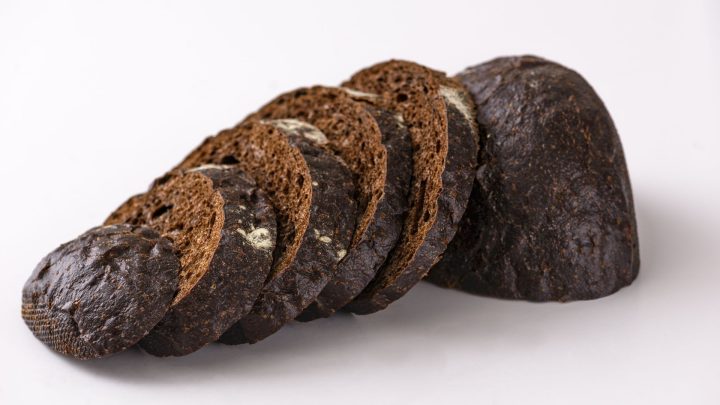
Can You Make Rye Sourdough Bread?
You can certainly make a rye sourdough bread using rye flour. In fact, I’ve got a rustic rye sourdough recipe and a rye sourdough with yogurt on my blog!
To make a rye sourdough bread, you’ll need a brand new sourdough starter that is fed with equal parts rye flour and water, instead of the usual whole wheat flour or white flour.
Rye flour is a wonderful flour to work with when making sourdough bread. The resultant moist loaf, is incredibly rich, and imparts a delightfully enhanced sour flavor, compared to other sourdough breads.
Here’s how to make a sourdough bread using rye flour:
Ingredients
- 500g rye flour
- 10g salt
- 250g rye sourdough starter
- 360ml water
Instructions
- Make the dough: Ensure that your sourdough has been fed the night before, so that it is active and bubbling the next day. Add the rye flour to a clean mixing bowl, and toss the salt into the flour. Add some water and sourdough starter to the flour. Combine these ingredients to create a dough. The dough may feel like a heavy paste. But don’t worry; this is exactly what you’re looking for when working with rye flour.
- Transfer the dough onto a clean work surface. Then stretch and fold the rye dough, so that the rye flour is thoroughly incorporated in the dough. There is very little gluten in rye flour, so you won’t have to knead the dough as much as you would in regular sourdough recipes.
- First proofing: Shape the dough into a ball. Replace the dough into the mixing bowl, (greased with a little olive oil). Cover the bowl with cling film wrap, and let the dough proof for 1 to 2 hours at room temperature.
- Then transfer the dough to a lightly floured work surface, and reshape the dough into a round shape.
- Roughly knead the dough, then place the dough into a proofing basket dusted with flour. Preheat your oven to 450 degrees, and place a Dutch oven in the oven. The Dutch oven will help trap moisture, and create a crisp crust.
- Place the dough into the Dutch oven, and place this into the preheated oven. Bake for 20 minutes. Then remove the lid of the Dutch oven and bake for 25 minutes at 430 degrees.
- Remove the loaf from the oven, and place on to a cooling rack, wait for an hour before cutting into the bread.
Why Rye Flour is Good in Sourdough
Many prefer rye bread over whole wheat sourdough, simply because of the increased nutrition profile. Rye bread contains many nutritional benefits compared to whole wheat flour, and this is especially true for sourdough rye bread.
Sourdough’s slow fermentation process increases the availability of nutrients within the flour. Which is why, including rye flour in sourdough bread is the best way to increase its nutritional benefits even further.
Keeping a Rye Sourdough Starter
Rye flour responds well to sourdough fermentation. This means that it ferments much faster. it also provides a wonderful variety of natural yeasts to the starter, compared to other flours.
Rye flour is also great at reviving an inactive starter. It can be included in any recipe that requires regular bread flour, providing your resulting loaf with an amazing boost of flavor and rise.
What is the Healthiest Bread?
Bread is a type of food that is unavoidable, simply because it is irresistible. The moist texture, coupled with its unique flavors, is what has most of us in a chokehold. When looking to clear your pantry and make healthier choices, many of us start by eliminating bread from our diets entirely. However, there are a good bunch of healthy breads for you to choose from. They are equally as delicious – if not more – and happen to be rich in fiber and vitamins!
Some of these include:
- Sprouted grain bread
- Whole wheat bread
- Gluten free bread (I have a dedicated blog post on sourdough being gluten free or not)
- Multigrain bread

Sourdough or Rye?
Many may wonder what type of bread is considered the healthiest in the world! Some may argue that sourdough is the healthiest, whilst others will look to rye. But when you combine these together to create sourdough rye, you produce a loaf that is incredibly moist, with delectable fruity flavors. It will aid in weight loss, deflate your bloated gut, and regulate blood sugar levels!
Want sourdough bread using other flour types? I’ve got a semolina sourdough recipe here!
Rye bread vs Sourdough FAQs
Is Rye Bread the Healthiest Bread?
Rye bread is considered more nutritious compared to regular wheat bread. This is because rye bread contains more fibre, and vitamins, as well as less gluten than regular bread.
Is Rye Bread a Sourdough Bread?
A sourdough rye bread can be made, simply by using a sourdough starter and rye meal. Though the resulting loaf won’t rise as high as a regular sourdough wheat bread, but it will be moister with a longer shelf life.
Is Rye Bread Healthy?
Rye bread is super filling and incredibly nutritious, which is why it is considered to be one of the healthiest breads to go for.
Is Rye Bread Fermented like Sourdough?
Unlike conventional breads that require yeast for fermentation, rye breads use a sourdough starter culture for fermentation.
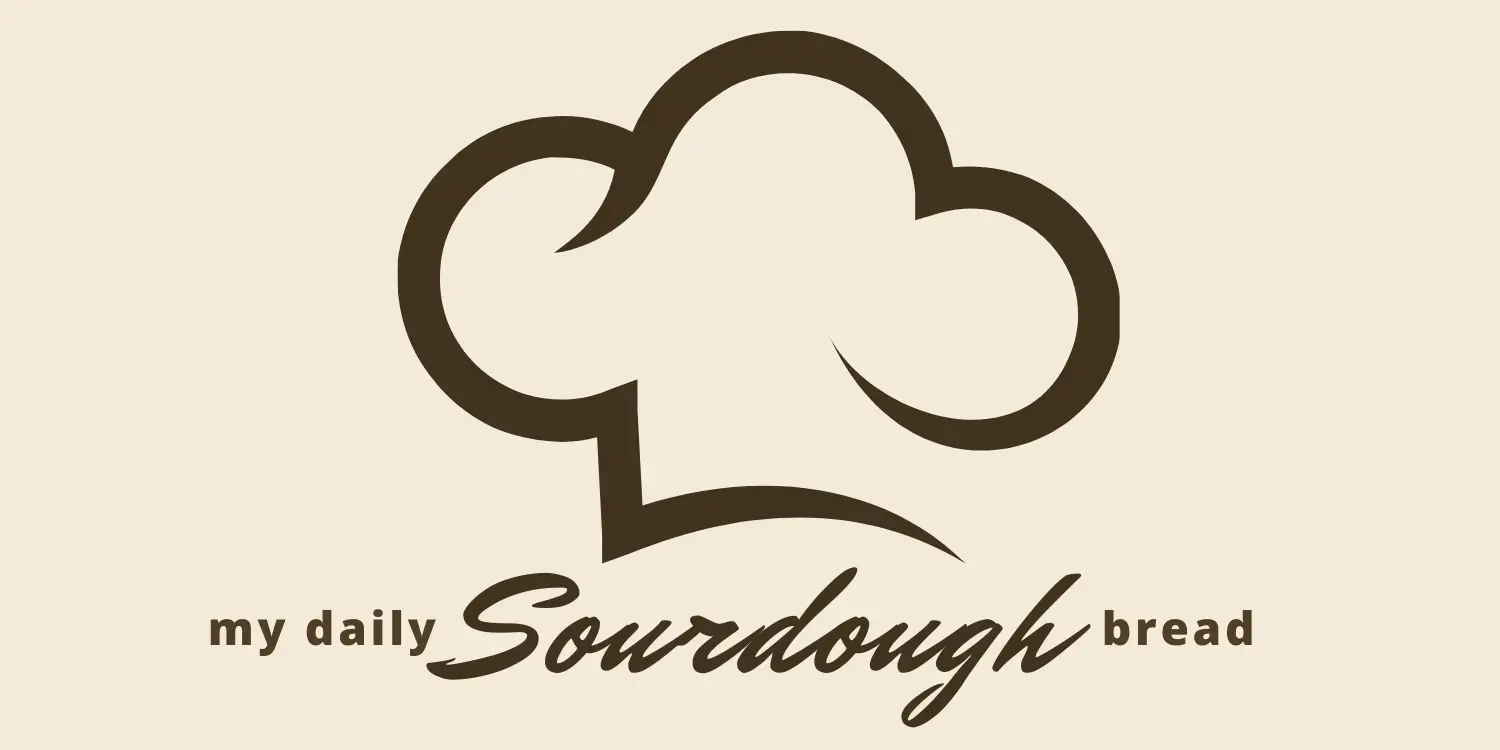

![[Video] From The Seed To The Peasant Bakery With Nicolas Supiot 74 [video] from the seed to the peasant bakery with nicolas supiot](https://www.mydailysourdoughbread.com/wp-content/uploads/2022/11/image-18-120x120.jpeg)

